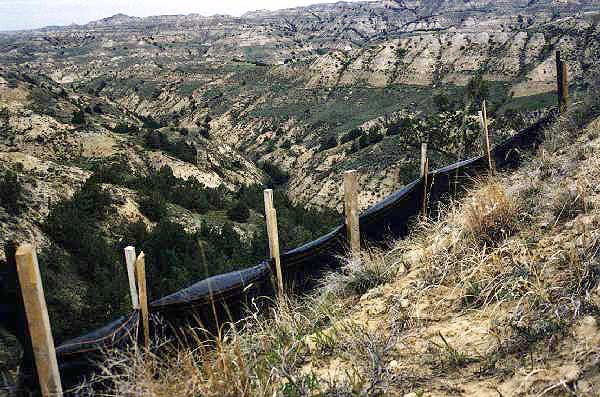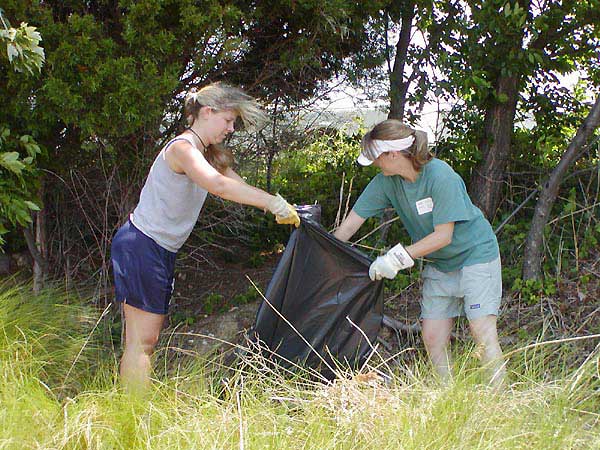What You Can Do
Pollution Tutorial

One of the easiest — and most important — ways that people can reduce runoff is to plant trees, grass and shrubs in bare areas. The added vegetation absorbs rainwater and holds soil together, thus reducing erosion as well.
Controlling and preventing nonpoint source pollution is every person's responsibility, including yours. There are many things all of us can do to reduce nonpoint source pollution, including:
-
Plant grass, trees and shrubs in bare areas. This is one of the most important things you can do to reduce nonpoint source runoff. The grass, trees and shrubs will reduce and absorb runoff, and their roots will hold the soil together, reducing erosion.
-
Properly dispose of motor oil and household chemicals. Never pour chemicals on the ground or in storm drains, where they will eventually make their way into a stream or river. Motor oils and household chemicals can harm, and even kill, aquatic life. Used motor oil should be taken to oil recycling facilities.
-
Use fertilizers and pesticides sparingly on lawns and gardens. Excess fertilizer and pesticides can damage your plants. The excess often winds up in runoff and can lead to eutrophication in waterbodies. To reduce the use of pesticides, use beneficial insects such as ladybugs and praying mantises to control unwanted pests in the garden. Try a technique used in agriculture known as "scouting." Go out and survey your yard or garden to see what pests are present and then use pesticides only if natural predators cannot keep the pests in check.
-
Put trash in its place. Keep it out of storm drains, where it will clog up the drain or end up in the nearest stream or lake.
-
Organize neighborhood cleanups. Go on stream walks in your neighborhood, removing trash and debris as you go. It's fun, a good way to meet your neighbors, and you can learn a lot about the natural environment.
-
Recycle plastic, glass, and paper. Less trash means less material in the waste stream, and reducing the waste stream is the goal of all measures to control nonpoint source pollution.

Neighborhood cleanup days are a good way to reduce trash in and around nearby waterbodies. It’s also a good way to meet neighbors and develop a sense of a shared community.
Pollution Lessons
- Welcome
- A Brief History of Pollution
- Point Source
- Nonpoint Source
- Urban and Suburban Areas
- Agricultural Operations
- Atmospheric Inputs
- Forestry and Mining Operations
- Marinas and Boating Activities
- Nutrients
- Suspended Sediments
- Pesticides and Toxic Chemicals
- Bacteria, Viruses, and Trash
- Research, Monitoring, and Assessment
- Controlling Nonpoint Source Pollution
- What You Can Do
- References
- Roadmap to Resouces
- Subject Review (PDF)
Categories of Pollution
Pollutants from Nonpoint Sources
